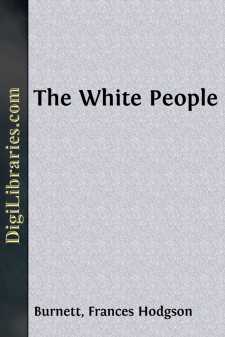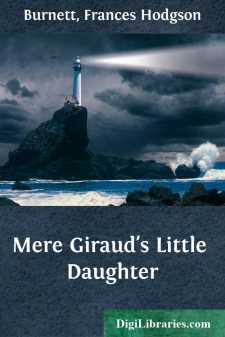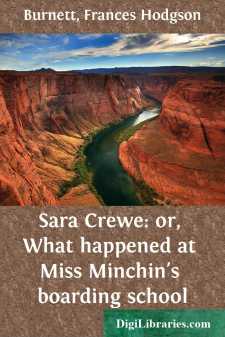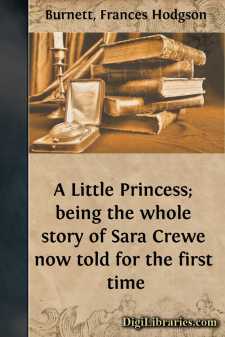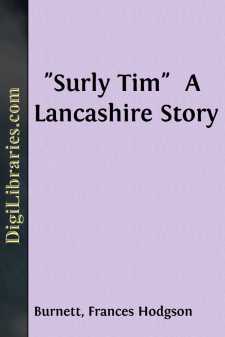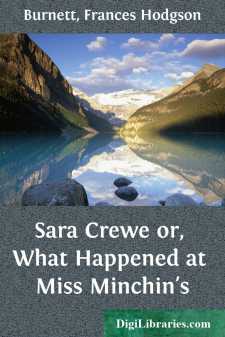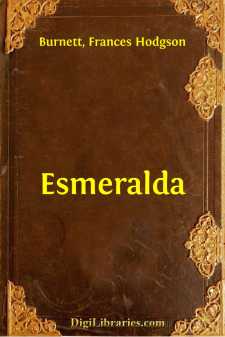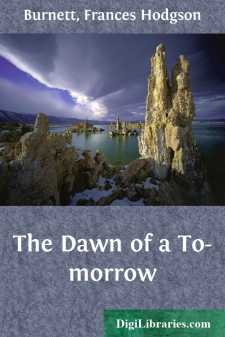Categories
- Antiques & Collectibles 13
- Architecture 36
- Art 48
- Bibles 22
- Biography & Autobiography 813
- Body, Mind & Spirit 142
- Business & Economics 28
- Children's Books 17
- Children's Fiction 14
- Computers 4
- Cooking 94
- Crafts & Hobbies 4
- Drama 346
- Education 46
- Family & Relationships 57
- Fiction 11829
- Games 19
- Gardening 17
- Health & Fitness 34
- History 1377
- House & Home 1
- Humor 147
- Juvenile Fiction 1873
- Juvenile Nonfiction 202
- Language Arts & Disciplines 88
- Law 16
- Literary Collections 686
- Literary Criticism 179
- Mathematics 13
- Medical 41
- Music 40
- Nature 179
- Non-Classifiable 1768
- Performing Arts 7
- Periodicals 1453
- Philosophy 64
- Photography 2
- Poetry 896
- Political Science 203
- Psychology 42
- Reference 154
- Religion 513
- Science 126
- Self-Help 84
- Social Science 81
- Sports & Recreation 34
- Study Aids 3
- Technology & Engineering 59
- Transportation 23
- Travel 463
- True Crime 29
Frances Hodgson Burnett
Frances Hodgson Burnett (1849-1924) was an Anglo-American novelist and playwright best known for her children's books, including "Little Lord Fauntleroy," "A Little Princess," and "The Secret Garden." Born in Manchester, England, she moved to the United States with her family in 1865, where she began writing to support her family financially. Burnett's works are celebrated for their rich storytelling, vibrant characters, and themes of resilience and transformation.
Author's Books:
Sort by:
CHAPTER I When Mary Lennox was sent to Misselthwaite Manor to live with her uncle everybody said she was the most disagreeable-looking child ever seen. It was true, too. She had a little thin face and a little thin body, thin light hair and a sour expression. Her hair was yellow, and her face was yellow because she had been born in India and had always been ill in one way or another. Her father had...
more...
CHAPTER I Perhaps the things which happened could only have happened to me. I do not know. I never heard of things like them happening to any one else. But I am not sorry they did happen. I am in secret deeply and strangely glad. I have heard other people say things—and they were not always sad people, either—which made me feel that if they knew what I know it would seem to them as though some...
more...
"Prut!" said Annot, her sabots clattering loudly on the brick floor as she moved more rapidly in her wrath. "Prut! Madame Giraud, indeed! There was a time, and it was but two years ago, that she was but plain Mere Giraud, and no better than the rest of us; and it seems to me, neighbors, that it is not well to show pride because one has the luck to be favored by fortune. Where, forsooth,...
more...
MISS MINCHIN'SSELECT SEMINARY FOR YOUNG LADIES Little Sara Crewe never went in or out of the house without reading that door-plate and reflecting upon it. By the time she was twelve, she had decided that all her trouble arose because, in the first place, she was not "Select," and in the second she was not a "Young Lady." When she was eight years old, she had been brought to Miss...
more...
A Little Princess 1 Once on a dark winter's day, when the yellow fog hung so thick and heavy in the streets of London that the lamps were lighted and the shop windows blazed with gas as they do at night, an odd-looking little girl sat in a cab with her father and was driven rather slowly through the big thoroughfares. She sat with her feet tucked under her, and leaned against her father, who held...
more...
"Sorry to hear my fellow-workmen speak so disparagin' o' me? Well, Mester, that's as it may be yo' know. Happen my fellow-workmen ha' made a bit o' a mistake—happen what seems loike crustiness to them beant so much crustiness as summat else—happen I mought do my bit o' complainin' too. Yo' munnot trust aw yo' hear, Mester; that's aw I can...
more...
In the first place, Miss Minchin lived in London. Her home was a large, dull, tall one, in a large, dull square, where all the houses were alike, and all the sparrows were alike, and where all the door-knockers made the same heavy sound, and on still days—and nearly all the days were still—seemed to resound through the entire row in which the knock was knocked. On Miss Minchin's door there was...
more...
MY ROBIN There came to me among the letters I received last spring one which touched me very closely. It was a letter full of delightful things but the delightful thing which so reached my soul was a question. The writer had been reading "The Secret Garden" and her question was this: "Did you own the original of the robin? He could not have been a mere creature of fantasy. I feel sure you...
more...
To begin, I am a Frenchman, a teacher of languages, and a poor man,—necessarily a poor man, as the great world would say, or I should not be a teacher of languages, and my wife a copyist of great pictures, selling her copies at small prices. In our own eyes, it is true, we are not so poor—my Clélie and I. Looking back upon our past we congratulate ourselves upon our prosperous condition. There was...
more...
I There are always two ways of looking at a thing, frequently there are six or seven; but two ways of looking at a London fog are quite enough. When it is thick and yellow in the streets and stings a man's throat and lungs as he breathes it, an awakening in the early morning is either an unearthly and grewsome, or a mysteriously enclosing, secluding, and comfortable thing. If one awakens in a...
more...



